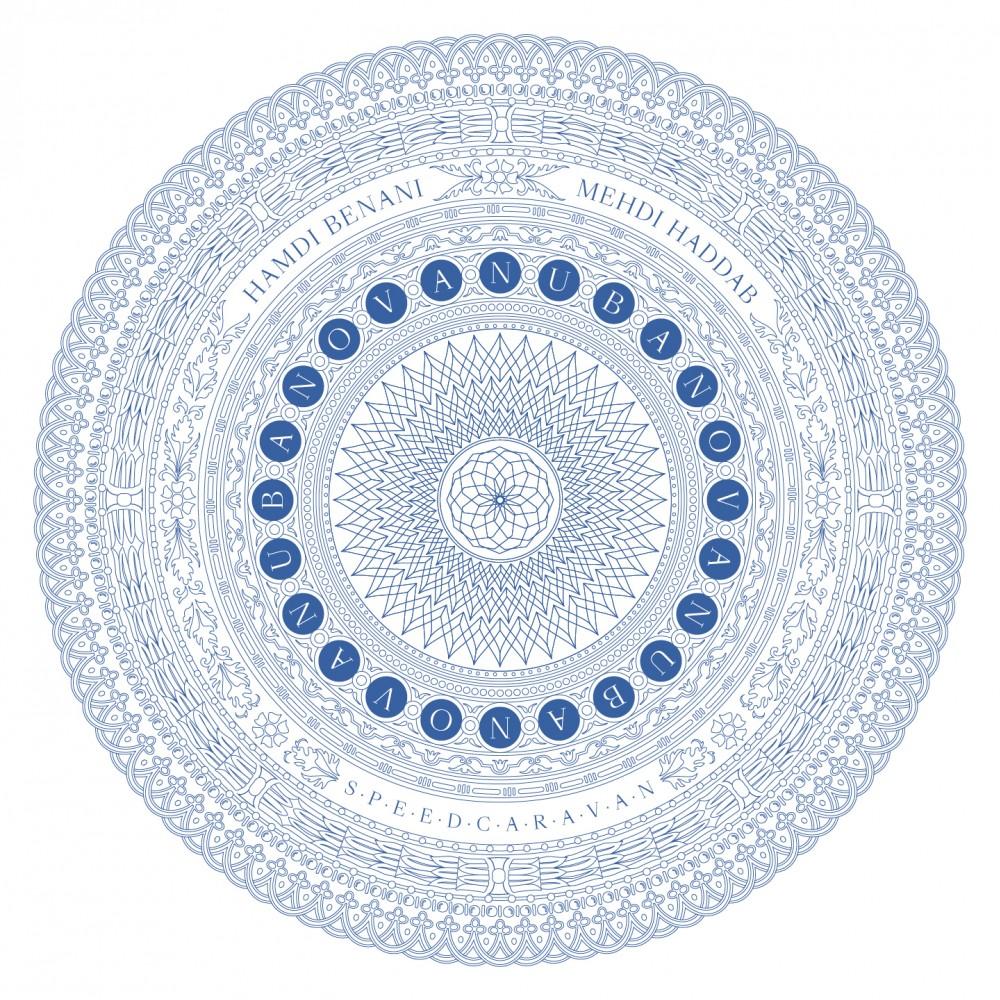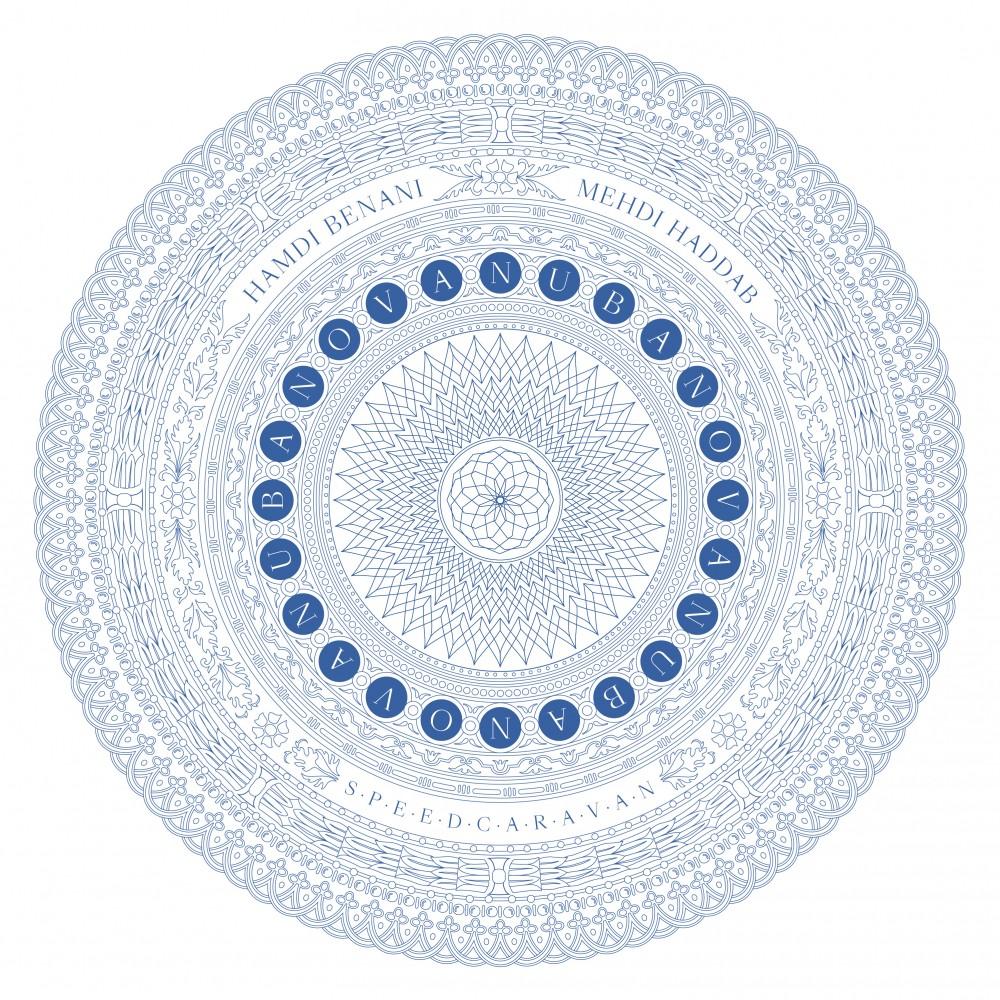It began with Mehdi Haddab, Franco-Algerian magician of the electric oud, and his ambition to compare notes and share inspiration with the master of the malouf annabi, Sheikh Hamdi Benani, raised in a rich family of artists (his father a painter, his uncle and great-grandfather both malouof masters), noble humanist of the city of Saint-Augustin, El Ghriba and Sidi Bou Merouane. It was a matter of curiosity and intuition. A meeting arranged by David Queinnec, then director of the French Institute of Annaba, helped the project along.
The two musicians quickly found themselves on the same wavelength. The founder of Speed Caravan agrees: “We hit it off right away.” It remained to choose the pieces that would spark the daring revision of a legacy: an attractive prospect for the sheikh, improv enthusiast, movie buff and Eddie Constantine fan. Throughout his career, hadn’t he already been presented as a renovator and put certain “purists” at ease? A choice was made, a mosaic of classical pieces, mostly instrumental, short pieces, songs, and a long suite chosen for its temporality. The challenge? To find new proposals, some totally new combinations of sounds, to revise a well-worn repertoire and somehow give it a new appeal. A reformulated work that was endorsed by “L’Ange blanc du malouf” (“The White Angel of the Malouf”, in reference to his white suit and violin) before confirming its validity with an Algerian concert tour.
A terrible event followed their recordings. Hamdi Benani, the jovial and humble ambassador of Malouf who travelled the planet seducing Mao Tse Tung, Castro, Senghor and audiences at the Sorbonne, died at the age of 77, a victim of Covid. This was the writer of Bellah Ya Hamami, who had recently received a vibrant tribute from the Algerian Ministry of Culture at the Palais de la Culture and who was decorated with France’s honour of Officer of Arts and Letters. A loss which makes this recording into a cult album, recalling the youthful spirit of a musician who was always attentive to others. A record that echoes his response to those people who, in the past, had criticised his orchestral audacity: “They thought I was interfering with the Nuba, which is not the case… I subscribe to the classic rule that one is not allowed to interfere.” Adding: “I told them ‘You’re wrong, gentlemen, because one day you’ll agree with me!’” It’s as if life proved him right.

